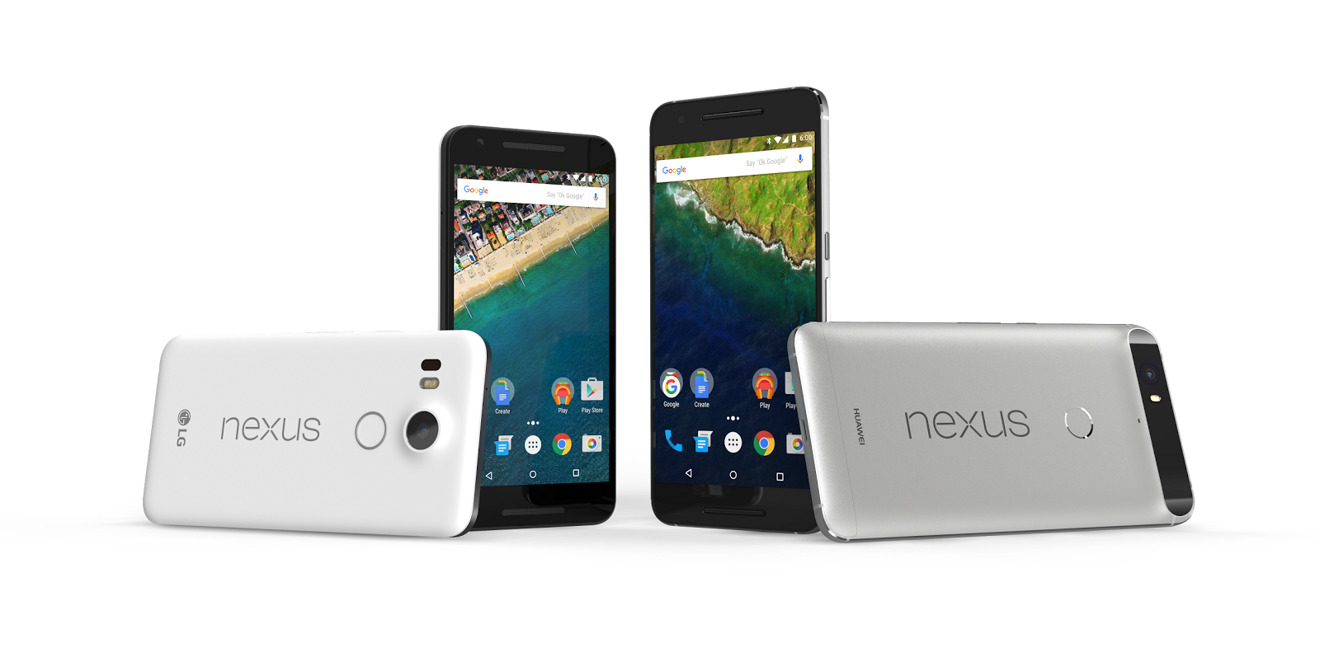Google is hoping to exert more control over its Nexus smartphone line, more closely following a business model set out by Apple and the iPhone, a report said on Monday.
While Nexus phones are currently marketed under the Google name — featuring pure versions of Android — the hardware is designed by partners like LG and Huawei, who in exchange get to place their branding on the devices as well. People within Google are signaling a desire to treat hardware makers similarly to how Apple treats iPhone suppliers, according to The Information.
CEO Sundar Pichai is allegedly hinting that future Nexus devices might only have Google's name on them. The idea is said to be creating consternation at HTC, which is in talks for a possible 2016 Nexus device. While the company would likely make money from a new Nexus deal, losing branding could hurt name recognition.
Google is meanwhile pursuing other tactics akin to Apple, such as trying to boost Nexus marketing budgets. Nexus phones have typically been treated only as showcase devices — illustrating the potential of Android software and hardware — but marketing budgets have been growing, even if the Nexus 6P and 5X reportedly didn't meet Google's more optimistic goals.
The company is said to keep about 15 percent of the revenue of Nexus phone sales, and handle online sales in the devices' top 10 markets. Because of the line's deliberately low profit margins, hardware makers are already shifting most marketing duties over to Google.
The company could theoretically choose to bring phone design in-house, since it's already reportedly micromanaging hardware details. That would solve what's believed to be a long-running fear at Google that Apple might one day limit its ability to generate money from iOS users — although Android is the world's most popular smartphone platform, Google is thought to be making most of its mobile revenue from ads and services targeting Apple product owners.
Obstacles might include the need to dramatically ramp up product advertising, and opposition from existing Android phone makers, who might lose sales.
 Roger Fingas
Roger Fingas




-xl-m.jpg)



 Thomas Sibilly
Thomas Sibilly
 Wesley Hilliard
Wesley Hilliard
 Christine McKee
Christine McKee
 Amber Neely
Amber Neely
 William Gallagher
William Gallagher
 Malcolm Owen
Malcolm Owen

 Mike Wuerthele
Mike Wuerthele








41 Comments
i see the LG nexus has a camera bump. was there mass hysteria?
i saw the other one pictured in a tv commercial...its stylings are definite echos of an iphone, right down to the chamfered fingerprint scanner ring. pathetic.
You've got to be kidding me. The Nexus 6P looks nothing like an iPhone. I've owned both phones.
nolamacguy
Well, it was fun while it lasted, but starting tomorrow, Apple will no longer be the most valuable company in the world after Google beat earnings and the stock is up $50+ after-hours, if it holds. No lamenting the global economy, or currency or any other lame excuses, they just keep growing earnings. Vision and execution is trumping a huge void of vision and a whole heck of a lot of stubbing their own toes at Apple. Best Tim Cook could do was blame the macro environment. Good companies just execute.
Edit: Google +$70 dollar now, it'll be a tens of billions gap starting tomorrow, but wont even be close at to who is the biggest and baddest company in the world soon with Cook leading Apple.
There can be only one business model like Apple's, and Apple owns it.